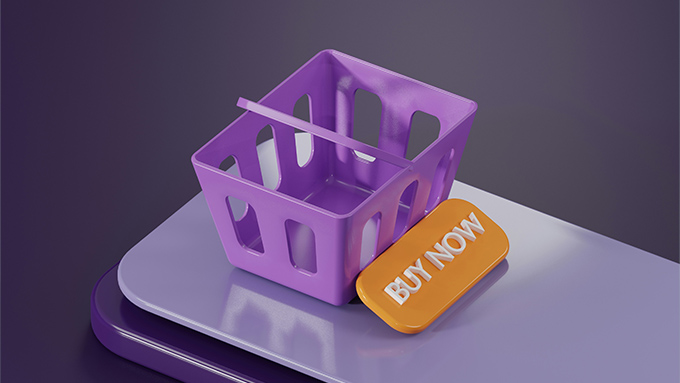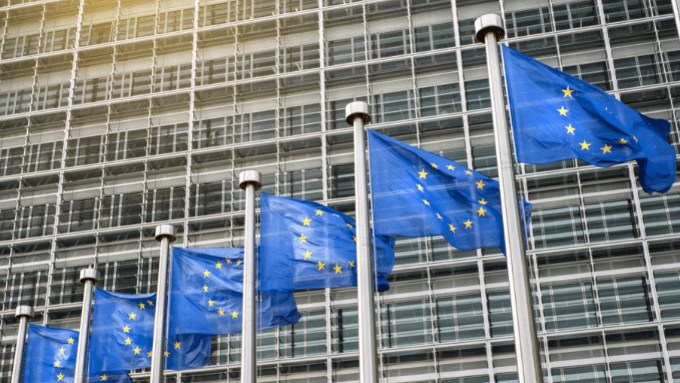Competition Authority’s Sector Inquiry Report on Television Broadcasting
Introduction
Important technological transformations have been emerging in the television broadcasting sector. As a result of these changes, whereas some parts in the sector are more competitive, in the other parts, competition concerns come into play. The Competition Authority has decided to conduct a sector inquiry in order to determine the impact of the changes in the sector, to identify the encountered competition problems, and to determine remedy proposals in this respect.
The Competition Authority considers the transition to the digital technology to be the reason of the change in the television broadcasting sector. Through this manner, any production can be presented through different networks, such as the internet and traditional broadcasting. Thus, consumers will have the opportunity to watch the productions of their choosing through the internet, or through traditional broadcasting channels. This technological development, which multiplies consumers’ options, has also paved the way for the presentation of broadband internet services and television broadcasts, together, i.e. the convergence. The Competition Authority states in the above-mentioned Sector Inquiry Report (“Report”) that transmission capacity is no longer a problem with regard to the field of television broadcasting. In parallel with this, the importance of content has also begun to increase. Therefore, the Competition Authority considers (i) the decline in the importance of the transmission limitations as a result of this competition among the networks, and (ii) the opportunity has arisen for consumers to reach the productions they prefer through various networks, such as traditional broadcasting and broadband internet services, and is viewed as positive alterations in the relevant sector.
On the other hand, it is stated in the Report that there are concerns regarding enterprises that have control of certain assets, which can be produced as a result of high costs, such as the conditional access systems that are used in the aforementioned networks and electronic program guidelines, to use this power for excluding their competitors. In other words, although the capacities of transmission networks that are used in relation to television broadcasting and their diversity have increased, the importance of the assets, such as conditional access systems and electronic program guidelines, creates the possibility for these to be used to exclude the competitors.
Television Broadcasting in Turkey
The Report reveals that the content of television broadcasting in Turkey is made through four different means, those being terrestrial analogue, satellite broadcast, cablecast, and broadband internet infrastructure, but that satellite broadcasting is by far the one which has the highest access rate (81%) amongst these means. The Competition Authority states that the investments in cable casting are insufficient, the broadcasting through broadband internet services is new, and it can be provided depending on internet speeds and fiber infrastructure. Hereby, the Competition Authority establishes that broadcasting through cablecast and broadband infrastructure is an indeed progress, albeit slow. Moreover, it is determined by the Competition Authority that there are no provisions regarding the access of television channels and Pay TV platforms through which to transmission infrastructures, but that no problem has been found with respect to infrastructure access.
With regard to access to Pay TV platforms, an important development has been emerging in Turkey. The Competition Authority recommends making regulations regarding Pay TV platforms, which become increasingly important. The Authority requests the regulatory authorities to issue regulations, particularly with respect to the access of enterprises that provide media services to Pay TV platforms. It is stated in the Report that in recent years the Pay TV platform services market has consistently grown in relation to the number of subscribers, but that the rate of increase has declined each year. However, it is also established in the Report that the prevalence of Pay TV platform services is low, and that this can be explained by Turkish audiences’ viewing preferences, their opportunity to reach many channels through satellite, socio-economic conditions, and through piracy access. Hence, the Competition Authority purports that the most important alternative product with regard to Pay TV platform services is open television broadcasting presented through satellite. In this way, it can be understood that both transmission systems are substitutes from the point of consumers.
According to the Report, the most conditioned market, in terms of competitive market conditions, is open television broadcasting. The Competition Authority expresses that there are no competitive concerns with regard to the procurement of content with high ratings by channels and relationships between channels and production companies. It is established that the most important problem with regard to the aforementioned market is piracy access. It can also be observed from the Report that the market power of Digitürk, which operates in Pay TV platform services, is embraced. It is seen that the mentioned enterprise holds a powerful position regarding both Pay TV platform operations and satellite platform operations. Accordingly, Digitürk’s rights to broadcast for the Turkish Super League are considered as an important factor of market power and competitive advantage against the other Pay TV platform operators.
The most important and interesting determination made by the Competition Authority is in relation to the joint product presentation. The issue regarding the presentation of the internet, fixed-line and television services in a single package is embraced in detail in the Report. In this respect, the Competition Authority determines that television and broadcasting sectors became closer to each other, but that in this case, there is the risk for the television broadcasting sector to be affected by the irregularities in the telecommunication sector. The IPTV services that are provided depending on the broadband internet infrastructure are given as an example of this situation. The fact that the fiber internet infrastructure is not sufficiently prevalent is given as the principal reason underlying the obstacles to the IPTV development in Turkey. Therefore, the Competition Authority points out that if telecommunication services become more competitive, competition will increase in markets, such as IPTV services and Pay TV platform operations.
The final issue that comes to the forefront in the Report is the development as to primary content. The Competition Authority states that the demands for primary content have increased due to the developments in the broadcasting field. It further purports that the scarcety of primary content is obtained by exclusive rights and, therefore, there is a competition structure for the market with regard to primary content. The primary content consists of film and sports broadcasting and, in particular, the sports content consists of important events, notably football matches. The Competition Authority explains that the Pay TV platform operators do not have a notable problem regarding their access to primary film content, but that the difficulties in access to football matches create competitive concerns. The sale of the live broadcasting rights for football matches in a single package is criticized in the Report. The Competition Authority underscores the fact that live broadcasting rights are marketed in more than one package in many European countries, and it points out the necessity to establish a more competitive tender structure.
Conclusion
The Competition Authority’s Sector Inquiry on television broadcasting reveals, in general, the emerging developments in light of the technological improvements in television broadcasting. The Competition Authority states that the prompt completion of the transition to the digital broadcasting is an important stage. It is also clear that the improvement of cable television and broadband internet infrastructure is recommended as another competitive factor. Eliminating obstacles to the installment of broadband internet infrastructure, allowing the electricity-gas companies to install fiber-optic cables, and enabling third parties to use their unutilized capacities are rather radical recommendations; whereas, this issue requires adopting exhaustive regulations, it can also cause other competition problems as the electricity and natural gas distributorship companies are dominant companies that have considerably high market power.
Another important recommendation that the Competition Authority included in the conclusion of the Report in question is to ensure the collaboration among the regulatory authorities with regard to the television broadcasting sector. The Competition Authority especially recommends increasing the cooperation between the Information and Communication Technologies Authority and the Radio and Television Supreme Council.
The Competition Authority makes its strongest criticism with respect to the tender structure regarding football matches. It is clear that the marketing of live broadcasting rights by way of separating into more than one package will be more competitive. Considering the existence of considerably early-dated decisions of the Competition Board regarding the live broadcasting of football matches, time will tell whether a more competitive tender structure can be ensured or not.
All rights of this article are reserved. This article may not be used, reproduced, copied, published, distributed, or otherwise disseminated without quotation or Erdem & Erdem Law Firm's written consent. Any content created without citing the resource or Erdem & Erdem Law Firm’s written consent is regularly tracked, and legal action will be taken in case of violation.
Other Contents

The U.S. District Court for the District of Columbia (“Court”) issued its memorandum opinion (Memorandum Opinion) on November 18, 2025, in the antitrust case (“Case”) between the Federal Trade Commission (“FTC”) and Meta Platforms Inc. (“Meta”). The FTC alleges that Meta monopolized the market…

No-poach agreements, which have become one of the most prominent concepts in global competition law in recent years, are defined in the Glossary of Competition Terms as “agreements, whether direct or indirect, whereby one undertaking agrees not to make job offers to, or hire, the employees of another...

The Competition Board (“Board”) has broad powers to request information from undertakings. The legal basis for this authority is provided by Article 14 of Law No. 4054 on the Protection of Competition (“Law No. 4054”). Under this provision, the Board may request any information it deems necessary from public...

Competition authorities around the world have increasingly focused on labor market infringements under competition law, issuing new regulations and guidance recently. Notable examples include the U.S. Department of Justice and Federal Trade Commission’s joint guidance, the Japanese Fair Trade Commission’s...

Chapter 8 of the General Data Protection Regulation (“GDPR”) sets out the legal remedies available to data subjects in the event of a breach of their rights under the GDPR. Accordingly, each data subject has a right to lodge a complaint with the supervisory authority of the Member State in which they reside, work...

Mergers and acquisitions play a critical role in shaping the competitive structure of the market. Although such transactions can lead to positive outcomes such as the provision of products and services at lower prices, the development of new products and technologies, and improvements in quality, they may also...

Technology and the opportunities it brings undoubtedly play a key role in strengthening the competitiveness of market players. In this context, pricing algorithms that enable undertakings to monitor publicly available prices and optimize their own pricing strategies have become widely used, especially by digital platforms...

The Regulation on Fines to Apply in Cases of Agreements, Concerted Practices and Decisions Restricting Competition, and Abuse of Dominant Position (“Former Regulation on Fines”), which entered into force upon its publication in the Official Gazette dated February 15, 2009 and numbered 27142, was...

In the past years, the Turkish Competition Board (“Board”) has closely monitored the activities of undertakings operating in the retail sector. As a result of the Board’s record of administrative fines, horizontal type of violations in the retail sector have been highly publicized. Vertical violations such as resale price...

In recent years, numerous automobile manufacturers have announced their goals to reduce carbon emissions, with many brands setting net-zero carbon targets spanning from production processes to the lifecycle of their vehicles. While ongoing debates persist regarding the significantly higher carbon footprint of...

Under Article 15 of Law No. 4054 on the Protection of Competition (“Law No. 4054”), the Competition Board (“Board”) may conduct on-site inspections at the undertakings’ premises when it deems necessary in fulfilling the duties assigned to it. During the on-site inspection, the Board is authorized to examine all...

Agreements and information exchanges between undertakings in labor markets have recently been examined in various preliminary investigations and investigations initiated by the Turkish Competition Authority (“Authority”). Following the investigations in which some undertakings were subject to...

The Turkish Competition Board’s (Board) decision regarding the acquisition of the international road transport business line of Ekol Lojistik AŞ (Ekol) by DFDS A/S (DFDS) has been one of the most prominent transactions on the competition law agenda recently...

The Competition Board (“Board”) has broad powers to request information from undertakings. The Board’s authority to request information arises from Article 14 of the Law No. 4054 on the Protection of Competition (“Law No. 4054”). Under the relevant provision, the Board may request any information it deems...

Doğuş Otomotiv Servis ve Ticaret A.Ş. (Doğuş) applied to the Turkish Competition Authority for an exemption for the practice of recommending basic wages to be applied to sales and after-sales service employees of its authorized dealers and distributors...

Access to Instagram was blocked ex officio by the Information and Communication Technologies Authority (ICTA) as of 2.08.2024. Under Article 8 of Law No. 5651 on the Regulation of Publications on the Internet and Combating Crimes Committed Through These Publications, ICTA can issue an ex officio access...

It is well known that agreements between employer undertakings with regards to their employees, such as wage-fixing and non-poaching agreements, along with competitively sensitive information exchanges have been under the scrutiny of competition authorities all over the world, including the Turkish Competition...

Automotive is one of the sectors in which the world’s most significant investments are made. The Competition Board (“Board”) has been closely interested in the automotive sector over the years and has conducted various examinations and studies in this field...

Competition authorities around the world continue unabated to investigate competition concerns arising from data collection and processing activities of digital platforms and impose severe sanctions as a result...





The startup ecosystem in Turkey has experienced notable growth in recent years. In the last quarter of 2023, 81 startups secured a combined investment of around 60 million dollars. While the number of investments remained consistent when comparing the third quarter periods of 2022-2023, there was a decrease...

Hub and Spoke cartel is a type of violation that is not clearly defined and regulated under Law No. 4054 on the Protection of Competition (“Law No. 4054”). Decisional practices of foreign competition authorities, particularly the UK Competition and Markets Authority’s decisions (“CMA”), are instructive concerning...

The Competition Board ("Board") made an addition to its line of decisions on resale price maintenance with its decision on Sunny Elektronik Sanayi ve Ticaret A.Ş. ("Sunny") . In its decision, the Board thoroughly examined the allegations regarding Sunny's involvement in maintaining resale prices and restricting...

It is observed that the Competition Authority (“Authority”) has recently scrutinized various industries such as fast-moving consumer goods, labor market, pharmaceuticals, and cement. When the reasoned decisions of the Competition Board (“Board”) published in October are examined, it can be seen that the...

Jules Verne says, “Everything on earth has a limited lifespan, nothing that will exist forever can be created by human hands”. Perhaps change is the only constant concept in all our lives. Despite two major world wars and countless periods of crisis, humanity has been undergoing a great change and...

At the meeting of the Fédération Internationale de Football Association (“FIFA”) held on 16 December 2022, the FIFA Council approved the FIFA Football Agents Regulations (“FFAR”). In the FFAR, various amendments have been made, such as the introduction of a maximum service fee limit that football agents are...

Resale Price Maintenance (RPM) is still considered a hardcore restriction under the recently revised Vertical Block Exemption Regulation (VBER), which means that it cannot benefit from a statutory exemption under Article 101(1) TFEU, unlike certain other types of vertical agreements. However, it has been debated...

In competition law, it is important to accurately determine the concept of undertaking, especially in terms of mergers and acquisitions. Therefore, the concept of economic entity aims to reveal the economic units covered by the undertakings. The relationship between the concept of economic entity and family ties comes...

In these days when the Competition Board (“Board”) frequently imposes administrative fines for preventing on-site inspections and both the Competition Authority (“Authority”) and undertakings take legal and technical measures regarding on-site inspections, a striking development has occurred. In its decision...

Online advertising has become an important source for businesses for promoting products and services and meeting consumers, as a result of the rapid development of information technologies and increase in the use of internet. Delivering targeted messages to consumers at the right time through the digital...

Selective distribution systems refer to a type of distribution system in which suppliers commit to selling the contracted goods or services directly or indirectly to distributors selected based on specified criteria, while the distributors commit not to sell the said goods or services to unauthorized...

Fast-moving consumer goods is undoubtedly one of the sectors that the Competition Authority has been working most intensively since the COVID 19 pandemic. Among the most important developments of this period was the Sector Inquiry initiated on Fast Moving Consumer Goods (“FMCG”) Retailing...

In the decision of the Constitutional Court ("Constitutional Court" or "Court") dated 09.11.2022, numbered 2020/67 E. 2022/139 K. (the "Decision"), the annulment of certain articles of the Law Amending the Law on the Protection of Competition No. 4054 ("Law No. 7246") was requested...

In Turkish competition law, certain types of mergers and acquisitions are subject to Turkish Competition Board’s (“Board”) approval in order to gain legal validity. Pursuant to Article 7 of the Law No. 4054 on the Protection of Competition (“Law No. 4054”), the Board is competent to define mergers and acquisitions...

Recently, the Competition Board (the Board) had imposed administrative fines on banks and financial institutions for failing to respond to the request for information within the scope of a preliminary investigation.[i] The request for information that lays the groundwork for the administrative fine imposed by...

Amazon, a world-famous company, is an e-commerce company that operates the world’s largest online shopping platform. In the backstage, Amazon is a data-driven company whose retail decisions are mostly driven by automated systems, fueled by the relevant market data. That being said, Amazon has a dual...

The right to make on-site inspections is one of the Competition Board’s (“Board”) most important tools for revealing whether Law No. 4054 on the Protection of Competition (“Law No. 4054”) has been violated. The effective use of this authority is quite important in terms of obtaining fruitful results from...

“Harese” is an interesting Arabic word. There is a thorn that camels love very much in the desert. The camel eats the thorn with great greed. So much so that, its mouth bleeds as it eats, but it doesn't stop eating. The taste of the thorn is mixed with the salty taste of its own blood. This mixed taste drives the camel...

Turkey’s leading pay television service provider, Krea İçerik Hizmetleri ve Prodüksiyon A.Ş. (“Digiturk”), is frequently the subject of complaints made to the Competition Authority (“Authority”). In fact, the Competition Board (“Board”) issues a new decision about Digiturk almost every year. In these decisions...

The French Competition Authority (Autorité de la Concurrence), within the scope of the competition law proceeding initiated upon the complaint of Criteo SA (“Criteo”), accepted the commitments proposed by Meta Platforms Inc., Meta Platforms Ireland Ltd., and Facebook France...

While the scope of Competition Board’s (“Board”) power to conduct on-site inspections has increased with the introduction of Guidelines on Examination of Digital Data during On-site Inspections (“Guidelines”), nowadays the amount of monetary fines imposed on undertakings continue to...

The hub and spoke cartel, which is a relatively new type of violation in terms of Turkish competition law, is defined as the indirect exchange of information between two independent undertakings which are horizontal competitors on the supplier or retailer level, through another undertaking...

The settlement mechanism has only recently been introduced to Turkish competition law practice. It entered into force with the amendment made to the Law on the Protection of Competition (“Law”) numbered 4054 on 16.06.2020, and has been in effect for less than two years. In this relatively...

Due to their increasing share in the economy and rapid growth rate, e-marketplace platforms have come under the increasing scrutiny of the Turkish Competition Authority (“Authority”) as well as many competition authorities around the world...

Pursuant to the Amendment Communiqué Concerning the Mergers and Acquisitions Requiring the Competition Board’s Approval (“Amending Communiqué”) published in the Official Gazette dated March 4th, 2022 and numbered 31768, certain amendments have been introduced...

The Competition Board (“Board”) has recently published a reasoned decision in which it evaluated BSH Ev Aletleri Sanayi ve Ticaret A.Ş.’s (“BSH”) request for negative clearance or exemption with regard to its practice of prohibiting authorized dealers from making sales through online marketplaces...

Shahmaran, a Mesopotamian myth, is believed to take place in Tarsus. According to the myth, the shah of snakes is the immortal and omniscient "Shahmaran." Shahmaran is described as a beautiful woman living in her cave with her snakes...


During the COVID-19 pandemic, competitive concerns about the pricing behavior of chain markets, manufacturers, and wholesalers engaged in the retail trade of food and cleaning supplies led to an investigation by...

When the past decisions and the recent decisions of the Competition Board (“Board”) are examined, a significant increase can be observed in the number of decisions where the Board found hindrance or obstruction of on-site inspections. This situation shows that...

The European Commission began investigating the collusive behavior of Credit Suisse, UBS, Barclays, RBS, and HSBC in the Foreign Exchange (forex) spot trading market in 2019. With the recent press release dated 02.12.2021, the Commission announced that the case is now closed...


Digitalization, in particular, necessitates the rewriting of competition law rules. Competition law is at the center all questions regarding e-commerce and digital platforms. The aforementioned platforms, which have become prominent due to innovations in...
















































